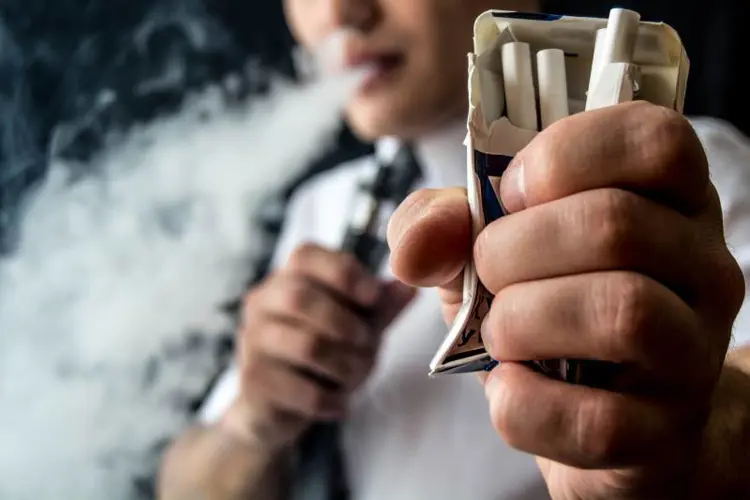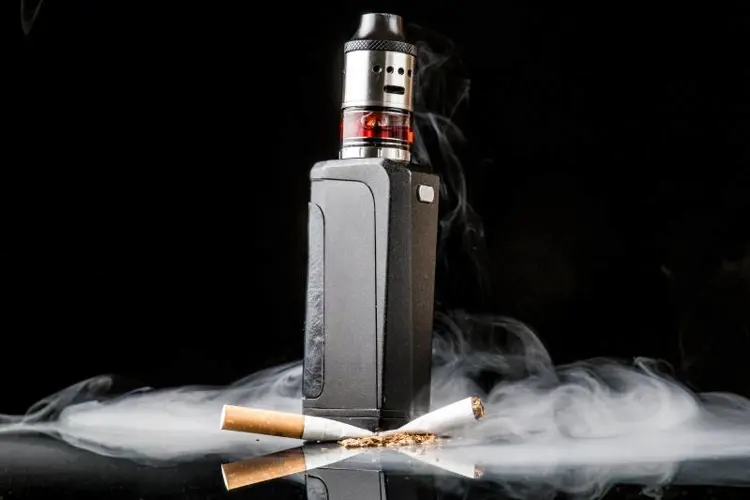After a couple weeks of bad news and worse news for vaping, along comes exciting good news from the least likely place imaginable: the University of California.
A new studyfrom the University of California-San Diego says that vaping helps smokers try to quit, and of those who try, more smokers who use e-cigarettes succeed. The study appeared in the British Medical Journal.
The research team used data collected by the U.S. Census CPS-TUS, a survey of adults to collect information about changes in tobacco product use. According to lead author Shu-Hong Zhu, a UC-San Diego professor of Family Medicine and Public Health, the CPS-TUS data is based on the largest sample of smokers and vapers available.
``These data suggest that e-cigarettes play the role of a cessation tool.”
The researchers looked at the connections between e-cigarette use and smoking cessation. They found that 65 percent of smokers who vaped during the previous year had tried to quit smoking, while just 40 percent of the non-vaping smokers tried.
Even more exciting, 8.2 percent of the smokers who vaped were able to quit smoking, while just 4.8 percent of those who didn’t vape were successful at quitting. "The cessation rate among those who did not use e-cigarettes remained the same compared to previous years," said Zhu. "These data suggest that e-cigarettes play the role of a cessation tool.”
"Our analysis of the population survey data indicated that smokers who also used e-cigarettes were more likely to attempt to quit smoking, and more likely to succeed," said Zhu. "Use of e-cigarettes was associated both with a higher quit rate for individuals as well as at the population level; driving an increase in the overall number of people quitting."
Great news, but will it stick?
The findings of this careful study are in direct conflict with Prof. Stanton Glantz’s famously sloppy 2016 meta-review, which in the words of scientists at the Truth Initiative, “simply lumps together the errors of inference” from the individual studies that were combined in the review. (If you’re not familiar with the Glantz paper, I suggest starting with Clive Bates’ brutal takedown.)
An accompanying editorial in the BMJ — titled “New evidence supports a liberal approach to e-cigarette regulation” — by Chris Bullen, a public health professor at the University of Auckland in New Zealand, emphasized the good news for public health.
“The research by Zhu and colleagues suggests that where such permissive approaches to e-cigarettes exist—ones that enable smokers to have ready access to products that deliver nicotine effectively, at a price lower than that of tobacco cigarettes—then substantial numbers of smokers will make the transition away from smoking, and a substantial population benefit can result,” writes Bullen. “In light of this evidence, policy makers in countries contemplating a more restrictive approach to the regulation of e-cigarettes should pause to consider if pursuing such a course of action is the right thing to do for population health.”
The question now is whether this study will get the publicity it deserves in the United States. The influence on the news media of nine years of relentless vaping negativity and outright attacks from American public health officials and tobacco control ideologues has prevented other academic efforts from breaking through to the general public.
By Wednesday evening, the story was already being reported widely, including by the Associated Press and Reuters, whose stories will be picked up by many newspapers. Will this good news tip the scales back toward something resembling fair discourse? Or will it be quickly forgotten? Cross your fingers.
The Freemax REXA PRO and REXA SMART are highly advanced pod vapes, offering seemingly endless features, beautiful touchscreens, and new DUOMAX pods.
The OXVA XLIM Pro 2 DNA is powered by a custom-made Evolv DNA chipset, offering a Replay function and dry hit protection. Read our review to find out more.
The SKE Bar is a 2 mL replaceable pod vape with a 500 mAh battery, a 1.2-ohm mesh coil, and 35 flavors to choose from in 2% nicotine.
Because of declining cigarette sales, state governments in the U.S. and countries around the world are looking to vapor products as a new source of tax revenue.
The legal age to buy e-cigarettes and other vaping products varies around the world. The United States recently changed the legal minimum sales age to 21.
A list of vaping product flavor bans and online sales bans in the United States, and sales and possession bans in other countries.



















